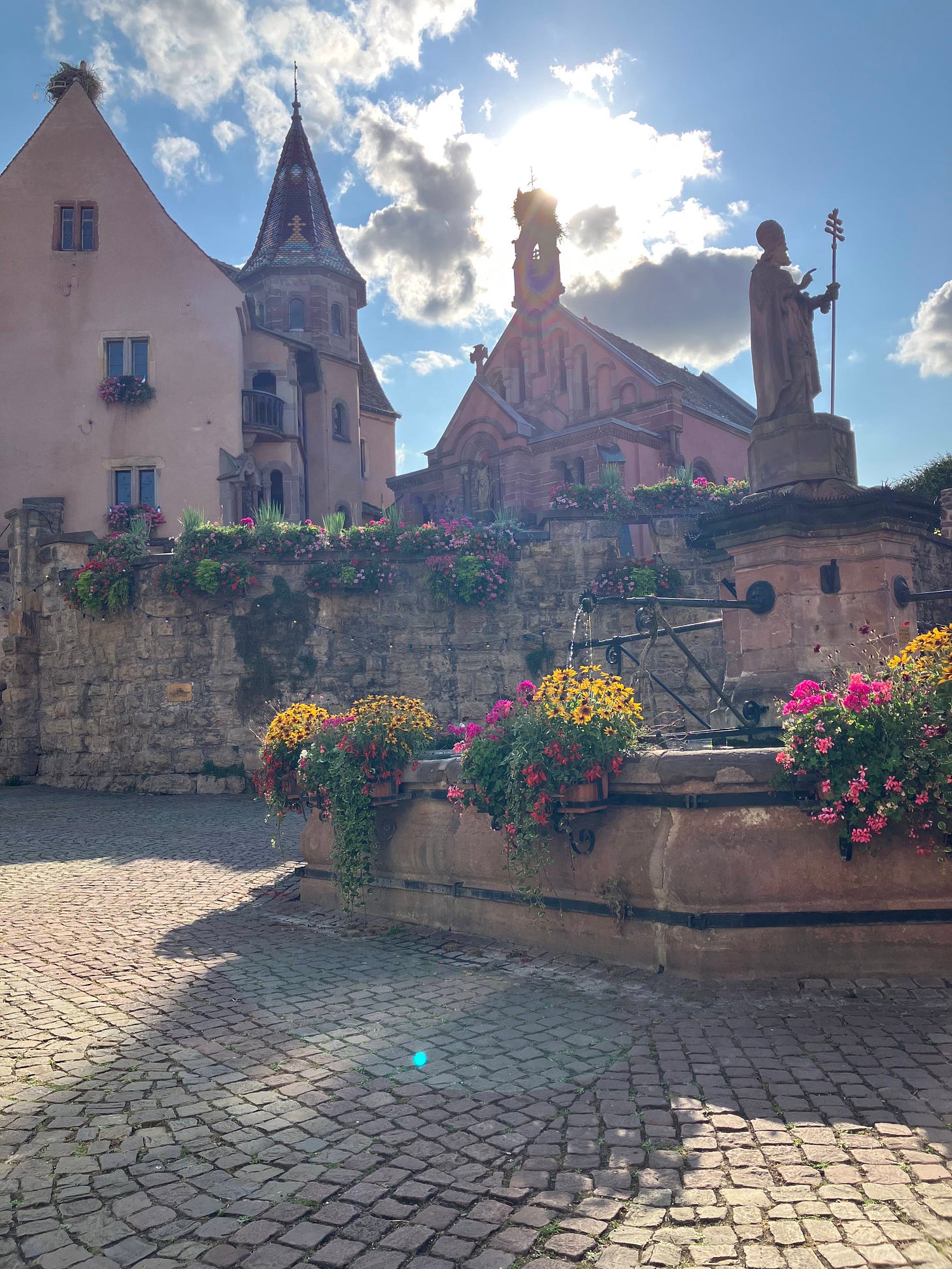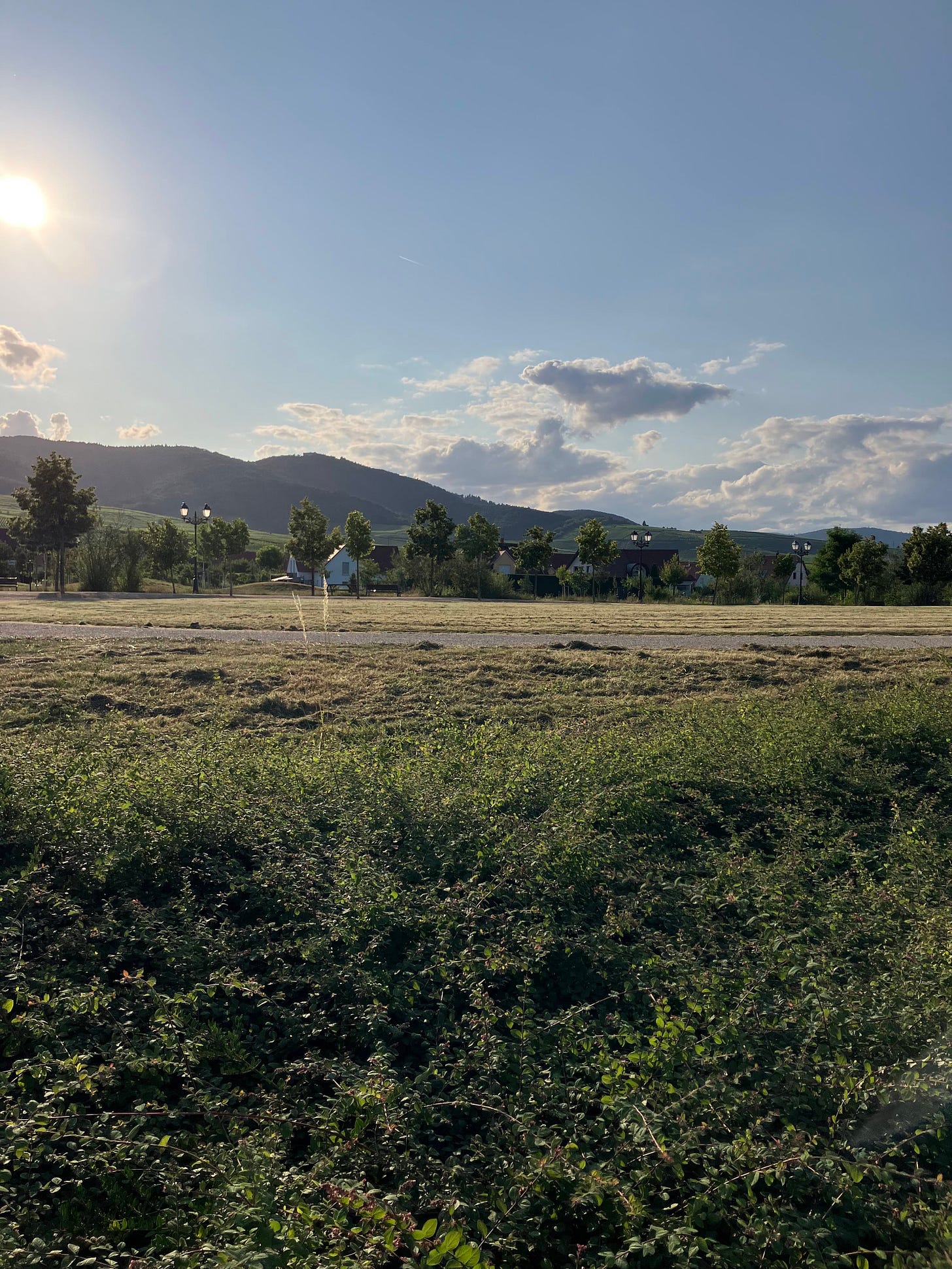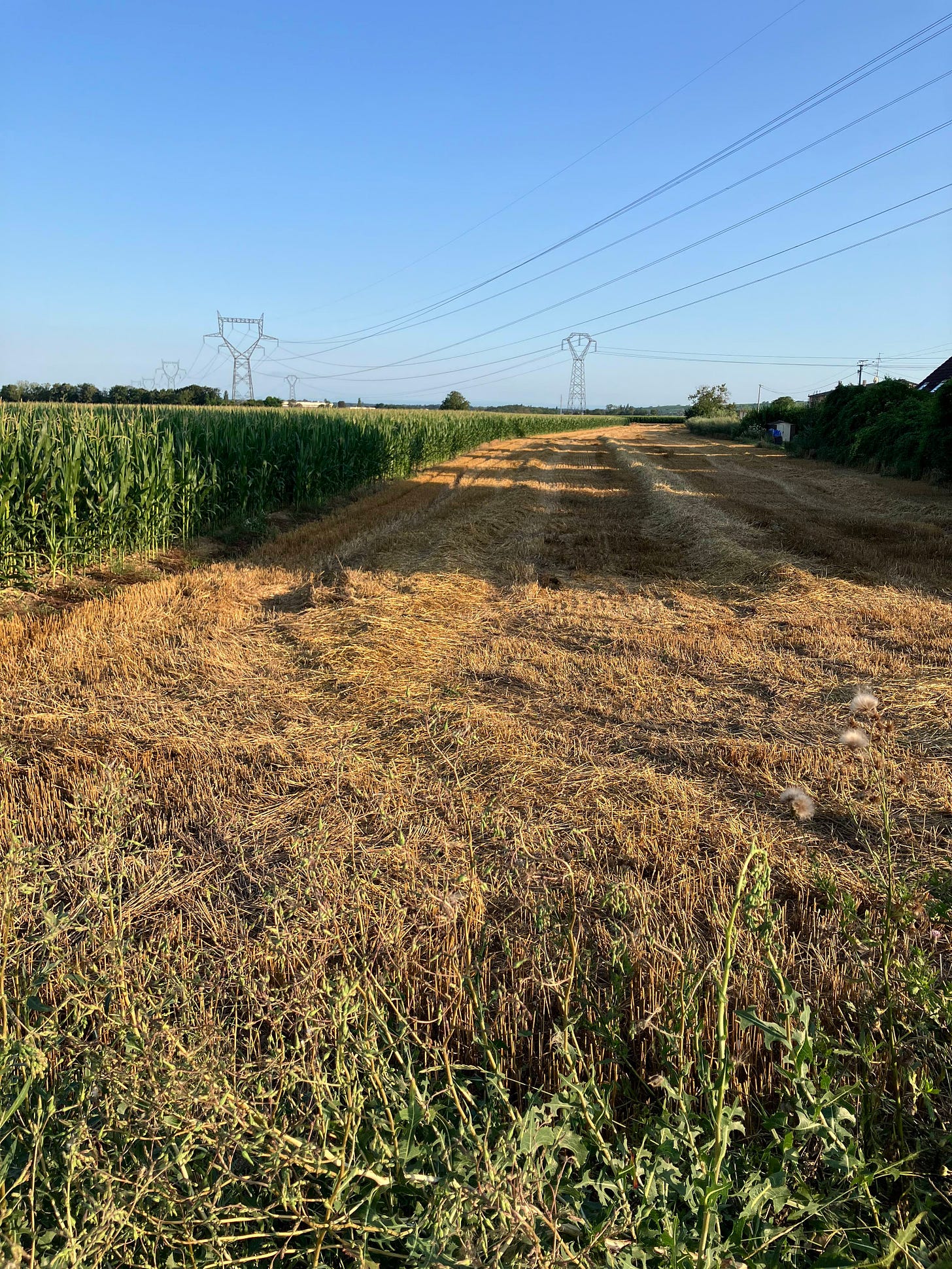32. See a wild fox
It's symbolism.
Since Fleabag season two, seeing a wild fox has taken on a significance that I don’t actually understand. I get the priest, and the love story, and that how we choose to express love is one of the most important components of feeling it, but I don’t get the symbolism of the fox. I could probably Google it or read posts on Tumblr, but I choose to let the Fleabag fox remain a mystery.
Real life foxes have remained a mystery to me as well. I felt as though I had seen one, since they have a lot of representation in media. There are especially a lot of foxes on social platforms, where fox rescuers post all the cutest, softest, giggliest examples of the species, usually saved from a pelt factory where they’re bred to be as friendly as dogs. A wild fox naturally has a disposition more like a cat. They’re meant to be sly, canny, quick. A fox that roles over to show you its belly will be made into a coat.
A weird thing happens in life where sometimes you think about something for the first time and it’s like you’re asking the universe a question. And then shortly after, the universe answers. For example, when you learn a new word and then start hearing it everywhere. This is the most basic formula for the Universe’s question-answer pattern. But I thought to myself, “I’ve never seen a fox in the wild,” and then a few days later, I saw one. I asked the universe for it without intending to, and it came.
So I didn’t plan this as a first time experience, but the experience found me because I was open to it finally happening. And I did encounter the fox in a scenario with many elements of the hero’s journey if I do say so myself. It began with dinner at a pizza place as many things do in Europe. There is a pizza place almost anywhere you go, for the sake of touristic palates. Not sure what regional dish you can stomach? How about a margerita pizza? It’s what was available in Eguisheim when many other things were closed late on a Wednesday, a town voted most beautiful in Alsace in the early 2010s.
I got there by bus from the town I was staying in, Colmar, which is slightly bigger and slightly less picturesque and has a reliable train station. The bus was fast and cost two Euros, but the schedule was erratic and after the pizza it was unclear if there might be another. Sometimes I get very weird about spending money while traveling. I could have gone home in a taxi for less than 13 euros probably, but got it into my head that I could walk. I should walk. It was financially responsible to walk across an hour of unfamiliar countryside in the gathering dark.
It was not totally insane. I asked my very handsome and genial waiter if he knew the area well and of course he did. I showed him the route on Google Maps and asked if it was safe—as in, no highways.
“Oh yes,” he answered, adding, “Most people don’t know, but you can walk anywhere in Alsace with no highways.”
With this stupid decision made, I headed down the pretty street, walking in the wrong direction. When I was turned around again, I found the road leading out of town. The gorgeous timbered homes faded into average single family suburban houses with normal TV antennas and laundry lines, and then those turned to grass or fields of grapes. At the end of this, I came upon a roundabout which was not technically a highway. It was also not very welcoming to people on foot, so I used the power of two glasses of pinot gris to skitter across in between zooming cars.
In a break in the tree line, a walkable road appeared and I believed myself safe. For another thirty minutes or so I walked past meadows and corn fields and all kinds of pastoral delights. There was no one around. At times the road was paved, at others it turned to rocky dirt. In places it turned to grass before picking up firmly again behind a hedge. It ran for a while under the electric lines.
But it was very clear where the road ended: a fence where there was no fence indicated on Google Maps had been erected. It was barricaded further by a wall of thorny blackberry bushes. I ate a few sour berries and pondered what to do, the seeds sticking in my teeth. To my right, another road went in the wrong direction. On one side of it was a mown hay field and far in the distance across the hay field there was a road going the right direction.
If you have never walked across a dry hay field, let me say, it is not as fluffy as it sounds. It’s like walking over a lawn except every half inch there’s a sharp stick poking out of the ground. They do crunch down a bit, but crossing over this texture took so, so long. I was swaying like a weeble wobble. I was sweating and anxious. The unexpected fence was guarding a small row of farmhouses to the left of the field and I kept expecting an irate farmer to pop out with a shotgun even though this was France and they probably don’t have one. Maybe worse would have been a camera phone, capturing the American tourist trespassing and moving like a Martian discovering Earth’s gravitational force. It was so unpleasant, I paused a third of the way through and considered giving up even though going back would be approximately as bad as continuing on.
Just then, a dark red animal popped out of the ground and cantered casually into the adjacent cornfield. I don’t think it actually looked at me, but I had the sensation I’d been given a contemptuous glance.
“What are you doing here?” its narrow shoulders asked, before forgetting me entirely. The fox was thin and dense and full of life, like wild things are.
The image of the fox burned like a little flame in my brain, powering me forward again. Stomping on and breathing heavily, I remembered the movie Vagabond by Agnès Varda where a girl dies in a French hayfield and laughed, thinking, “I’m about to do a Vagabond.”
Finally, finally, finally, I reached the road and enjoyed a stretch of normal walking on a sidewalk that took me through the less touristy side of town and then through Colmar’s train station and to my hotel, where I ordered another glass of Pinot Gris and sat outside, considering my decisions. Then I thought about all the quiet burrows where creatures curl up, dreaming yet attuned to the encroachment of footsteps above.
It is almost unbelievable that the fox and I are of the same world. I’m sure anyone reading this who grew up in the country will find that a ridiculous statement, but if they searched their own personal histories they would find their version of the fox. Something that lives in a way that you could only have an encounter amidst some surreal and absurd endeavor because the normal course of your life would never bring you into alignment with it otherwise. If you’re thinking of whatever that thing is, multiply it exponentially, because that is how many unseen, unknown things there are; the creatures, delights, and horrors around every corner that we often miss by taking the same safe route.
That said, I would not recommend doing a Vagabond. For legal reasons.
I looked it up and France has a population of 300,000 wild foxes, which seems low. But it is on par with Canada, a much bigger place. So if you see a fox in Canada, you are really having an unlikely experience. Start measuring all your experiences in Canadian Foxes.
Foxes everywhere are moving into urban spaces as their wild habitat is decimated or trodden upon by oafs. Which made me think of Anne Clark’s tweet about Paris banishing wolves.
And interestingly, in 2017 they were back:
"We are certain that there are three in circulation since April last year, one couple and another lone wolf," Manoël Atman, the president of the wolf-watching group Alliance avec les loups, told The Local.
Atman together with the another wolf-watching group, the Observatoire du loup, told Le Parisien newspaper that the wolves were roaming across the departments of Yvelines and Essonne, while another was in the nearby Seine-et-Marne.
The research groups, which include geographers and biologists, have collected evidence including reports of characteristic wolf howling, sightings of paw prints, and the discovery of wolf droppings.
Oh, to discover wolf droppings in Paris.
Seen anything surprising lately? I love cryptid stories.








